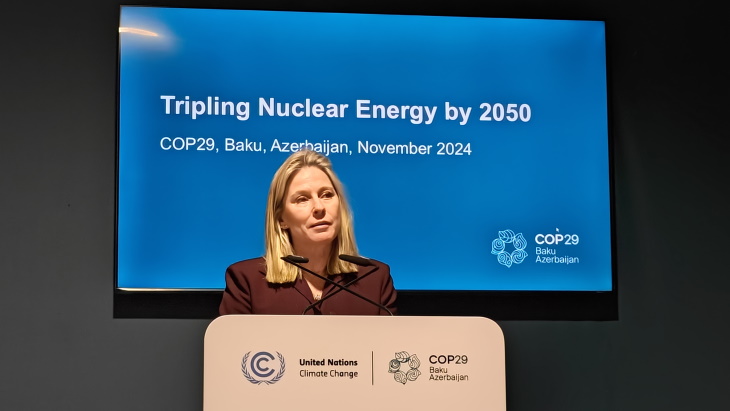US Senate passes 'single biggest climate investment'
.jpg)
The Senate vote took place days after Senator Joe Manchin - the Chair of the Senate Committee on Energy and Natural Resources - agreed to support the budget reconciliation bill, which forms part of President Joe Biden's so-called Build Back Better agenda. With 50 votes in favour of the act and 50 against, Vice President Kamala Harris's casting vote saw the bill passed on 7 August. Approval in the House of Representatives - where the Democratic administration hold a stronger majority of seats than in the Senate - will be needed before it is signed into law by President Biden.
The legislation includes provisions to tackle record inflation, lower healthcare costs, and increase energy security, paid for through corporate taxes, and outlines some USD369 billion in climate and energy investments, with multiple provisions supporting both new and existing nuclear energy. According to Senate Democrats, the act is expected to reduce carbon emissions by roughly 40% by 2030.
Reacting to the Senate vote, President Biden said the bill makes the USA's "largest investment ever in combatting the existential crisis of climate change". Among other things, this path to decarbonisation includes making electricity tax credits fuel-neutral, allowing all zero-emission fuels to take advantage of investment or production tax credits, making tax credits available to incentivise technologies such as fusion and advanced nuclear reactors. It also institutes the first-ever production tax credit for existing nuclear and hydrogen.
Ahead of the Senate vote, Maria Korsnick, president of the US Nuclear Energy Institute, said the tax provisions proposed in the act, including the nuclear production tax credit, address economic hurdles and provide confidence for investment in nuclear plants.
"By creating tax incentives that include all carbon-free technologies, we are one step closer to deploying new, cutting-edge nuclear technologies that will meet the growing demand for more clean energy. Additionally, the proposed funding for the development of domestic HALEU (high-assay low-enriched uranium) fuel is an important step in ensuring the success of these new nuclear technologies that will play an important role in meeting our national climate goals," she said.
Technologist, business leader, and philanthropist Bill Gates said the act would be a "historic step forward" in solving the hardest challenge humanity has ever faced. Writing in the New York Times, he said the act "may be the single most important piece of climate legislation" in US history. "It represents our best chance to build an energy future that is cleaner, cheaper and more secure," he said.



_53540.jpg)









